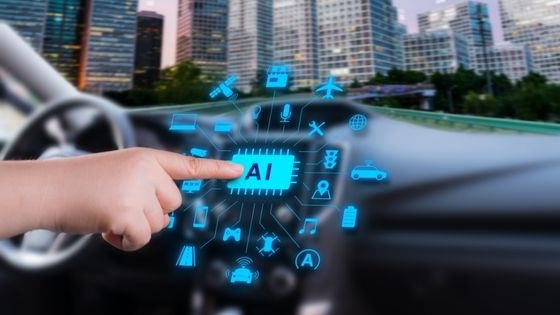Without anyone’s command, social media suggests friends for its users. While browsing on the internet suddenly you see a pop-up page appear on your device suggesting an upcoming sale of your favorite brand of smartphones and laptops. Have you ever thought which technology works behind all this? If not then read the complete article to know the answer to these questions.


All these things work on the technology “Artificial Intelligence” which is sometimes referred to us as the fourth industrial revolution. The origin of Artificial Intelligence can be traced back to Greek Mythology but it got more popular in modern times when stored-program electronic computers were introduced into the market.
What is Artificial Intelligence?
In layman’s terminology, it is a technology that describes the action of machines that have historically required human intelligence. With AI we are making machines intelligent or to make them think like us. In Artificial Intelligence we include technologies like Machine Learning, Big Data, Self Algorithms, Pattern Recognition, etc. It is a complex technology that works on data history. We feed a particular data into the machine and make it react according to the different situations. By analysing the stored data, the machine will be also capable of answering the never asked questions just like humans. Machines also create self-learning patterns based on data. India has made great strides in the development of Artificial Intelligence in the past few years.
If you want to learn courses on latest trending technologies like AI, Cloud Computing, Cybersecurity etc, they are available on various learning platforms. On Black Friday Sale 2022 prices will be lowered and you get huge discounts. Apart from these courses you will also get Black Friday Guns 2022 Deals.
How is Artificial Intelligence Different?
AI is distinct from robotic automation powered by hardware. AI successfully completes frequent, high volume computerised tasks rather than automating manual ones. AI is frequently confused with machine learning. Machine learning is just one component of the larger field of artificial intelligence (AI), which also encompasses technologies like natural language processing, inference algorithms, neutron networks, etc. That’s why AI is a different technology from others.
Benefits of the Artificial Intelligence
One of the primary advantages of AI is that it reduces the time and human labour to perform tasks. Several complex tasks can be accomplished in seconds with the use of AI. We can increase our production by involving the use of AI in our industries. The machine which would work on Artificial Intelligence can work for 24 hrs continuously day and night for 7 days. They don’t exhaust like humans. Also, they perform work in a very precise manner without any error. It saves both time and resources at the same time. So if we use it properly we can boost the economy of our country. If we talk about the present scenario of AI in our country, it is in an evolving stage. All the stakeholders and government should come together and act now for AI for the betterment of the country if we want to reap its positive aspects in the future.
Perils Associated with Artificial Intelligence
Just like a coin has two sides, the same goes with AI. There are various concerns that arise in the market with the proliferation of AI. We all are aware of the fact that AI systems are developed by humans. So they can be biased and judgemental. AI can promote inequalities and prejudices if algorithms set for AI are set by biased humans. There are various occasions where a breach of privacy occurred due to Artificial Intelligence. AI systems work by analyzing large volumes of data. It is a direct threat to the Right to privacy due to unauthorized access to one’s activity information or data.
Global Standards Ethics For AI
The General Conference of UNESCO endorsed the Recommendation on the Ethics of Artificial Intelligence at its 41st session in 2021. It intends to significantly alter the distribution of power between people, businesses, and governments engaged in AI development.
Affirmative action will be used by UNESCO members to ensure that minorities and women are fairly represented in AI design teams. The guideline also emphasises the significance of adequate data management, privacy, and information access. Member states are urged to make sure that suitable protections are developed for the processing of sensitive data and that efficient accountability and redress mechanisms are offered. The recommendation strongly suggests that AI technologies shouldn’t be employed for mass surveillance or social scoring.
The psychological and cognitive effects that these systems may have on children must be taken into consideration. Not only should member states invest in and foster information literacy, but also socioemotional and AI ethics abilities. Additionally, UNESCO is working on establishing methods to measure how well the guidelines are being implemented. Such a “whole of society” strategy must be based on a “whole of globe” approach given the worldwide reach of AI. A good place to start is with the UN Secretary-Roadmap General’s on Digital Cooperation. In order for AI to be deployed in a way that is “trustworthy, human rights-based, safe and sustainable, and promotes peace,” it lays out the necessity for multi-stakeholder activities on international cooperation.
How to Proceed with AI?
Artificial Intelligence brings great scope for prosperity and growth. We just need to make sure that the technology will be applied and used in the right direction.








